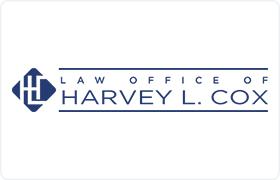China Spring Wills & Probate Lawyer, Texas
Sponsored Law Firm
-
 x
x

Click For More Info:
-
Law Office of Harvey L. Cox
1600 Lake Air Drive Suite 102 Waco, TX 76710» view mapEstate Law, Power of Attorney A New Perspective On Estate Planning
Our Family Estate & Business Planning focuses on protecting your assets from creditors, predators, lawsuits, judgments, liens, and greedy relatives.
800-795-7741
Includes: Estate Administration, Living Wills, Wills
Kelli Fernandez Villarrial
Wills & Probate, Family Law, Criminal, Personal Injury
Status: In Good Standing
Laura Raymond Swann
Wills, Estate, Elder Law, Civil & Human Rights
Status: In Good Standing Licensed: 33 Years
John F. Sheehy
Commercial Real Estate, Wills, Estate, Criminal
Status: In Good Standing Licensed: 76 Years
Michael J. Gulig
Wills, Gift Taxation, Business & Trade, Business
Status: In Good Standing Licensed: 50 Years
David W. Anderson
Commercial Real Estate, Federal Appellate Practice, Wills, Civil Rights
Status: Inactive Licensed: 47 Years
John D. Malone
Commercial Real Estate, Wills, Business & Trade, Credit & Debt
Status: In Good Standing Licensed: 49 Years
 Harvey L. Cox Waco, TX
Harvey L. Cox Waco, TX Practice AreasExpertise
Practice AreasExpertise
